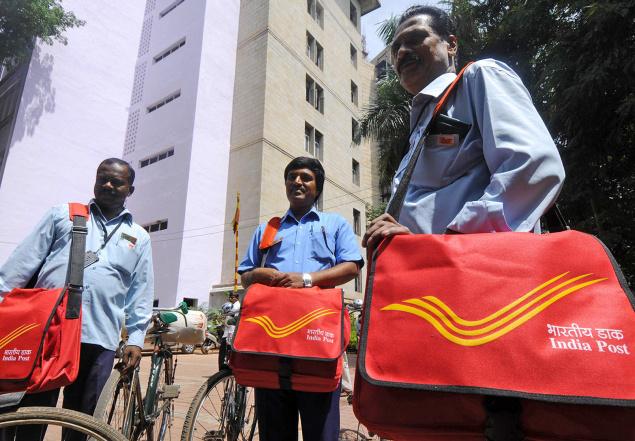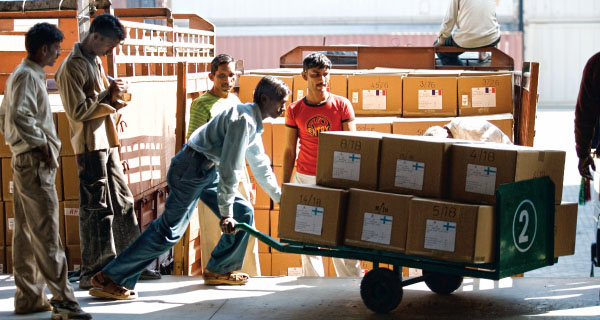Pitfalls & perils of ecommerce logistics – the logistics players’ side of the story
With the meteoric rise of the ecommerce industry in India, several peripheral and supporting industries have also seen substantial growth. The online marketplace model has helped many a small entrepreneur’s business grow and thrive. It has also generated employment opportunities for several hopefuls.
Among the industries that have benefitted from the ecommerce industry, prime is the logistics sector. The logistics industry is growing like never before, with new companies entering the scene, revival of existing services, and investments pouring in.
Investments in logistics and the revival of India Post
Ecom Express recently raised about Rs. 850 crores in an investment from Warbus Pincus. Delhivery raised close to $85 million from Tiger Global.
The Indian postal department, which is gradually being overtaken by private courier companies, is being revived, thanks to ecommerce. Online retailers are reaching out to India Post for their logistic requirements. Amazon was one of the earliest to partner with India Post. Others like Shopclues and Snapdeal followed.
One of the major benefits of India Post is its reach.
The government’s logistics wing has access to the most remote corners of the country, making it an invaluable partner. Especially in the Tier 2 and 3 cities and rural areas, where ecommerce is picking up pace, there is a shortage of reliable courier services. This feature is particularly required in the last mile delivery, which is a vital link in the logistics chain.
However, the affair with India Post comes with its own problems. Postmen are equipped with bicycles, as against the motor vehicles that the delivery boys of courier companies use. Cycles will be absolutely inadequate to carry heavy parcels and electronics and appliances.
This problem might soon be solved, as leading ecommerce websites are holding discussions with the government to find a workable solution.
Apart from this, the occupational hazards of working with a government organization also pinch etailers. Some customers have reported indifference in delivering parcels on the part of the postal department. Some sellers have also said that the association with the postal department has not been smooth.

The view from the other (logistics) side
We spoke to Ecom Express and they gave us an insight into the logistics world. An official spoke to us on condition of anonymity. He tells us about the hurdles the logistics companies face, particularly in the ecommerce field.
“Courier companies are dependent on multiple factors like the airlines, local authorities, the delivery staff, infrastructure, and vehicles. There are things that are out of our control.” He says.
He feels that demand is not consistent.
“One of the major problems is the volatility of demand. The problem is, even the ecommerce companies themselves cannot predict the volume of orders they receive. There is a huge difference between the projected demand and the actual demand. This results in a mismatch between the demand and supply,” he says. “this happened during last Diwali.” How would one work around this? “We talk this out with ecommerce companies, and come up with workable delivery dates. It is important that the companies do not over commit,” he says.
Fake merchants taint the name of the marketplace and the logistics company
Dealing with fake merchants is a huge issue at the logistics sector. With the drop ship model gaining popularity, it is easy for unscrupulous people to make a fast buck out of the booming ecommerce, says the official. “There are many fake merchants who ‘sell’ branded goods, but in fact put stones or soap bars in the package.” The courier company will naturally take the parcel to be a genuine one, and delivers it in good faith.
Unfortunately, he says that it is not a simple task to weed out the moles. “
This cannot be handled by the logistics companies alone. Ecommerce companies also have to do their bit in verifying the authenticity of the sellers. However, this is also not fool-proof. If you blacklist a merchant, she or he can always create a new account under a false name.”
What is a workable solution for this?
“I feel ecommerce companies would do good to have warehouses of their own, that way it is more convenient to carry out quality checks and screenings.”
Issues in shipping
It is but natural that consignments will face some rough handling at the different stages of the journey. Indifference on the part of the airlines and others, however, causes damage to the products.
“Sometimes the goods get damaged as a result of the rough handling at different modes of transport,” he points out.
With the festive season coming up, things will get problematic.
“During the festival time, our consignments are offloaded at the airlines because there isn’t enough cargo space. This naturally results in delays in delivery. Sadly, due to these delays, the customers cancel the orders or refuse to accept them when they are delivered,” he rues.
He agrees that setting realistic delivery dates will go a long way in sorting this problem. The sheer volume of buyer purchases puts a strain on the process.
And how do you deal with cranky customers? He is quite optimistic. “It is all in how you deal with them. Our teams proactively handle irate customers and manage to diffuse the situation.”

High employee attrition
Manpower is one of the major challenges in the logistics industry. As people are the major artery in the delivery process, they are also the most vulnerable resource.
“There is a shortage of manpower. Competitors are waiting to swoop in, and employees are willing to jump ship for even a small hike. This causes a high percentage of attrition,” he says.
“There are also problems in the critical last mile.” he points out.
This becomes especially difficult in Tier 2 and 3 cities, where connectivity is limited. The last mile delivery is the costliest in the delivery chain. This article succinctly covers the problems in ecommerce logistics in India. It very rightly points out that using bigger vehicles like trucks to deliver goods is impractical and time consuming. The dependency on two wheelers of courier services increases as a result.
Now that we have the word from the horse’s mouth we know how tough it is for the logistics companies. But fact remains that despite the problems, a long term workable solution is of utmost significance to end logistics woes for both a seller and the logistics players. Agreed, it requires joint efforts from everyone in the ecommerce ecosystem and development of infrastructure. When will the players involved start thinking of working together to make it happen?
About Author

Editor team is specialized in introducing the marketplace content targeting the Indian online sellers. They plan and coordinate to bring the appealing content for the small businesses on how to partner with the e-commerce sites like Amazon and Flipkart and strategies for improving their online business.
Leave a Comment